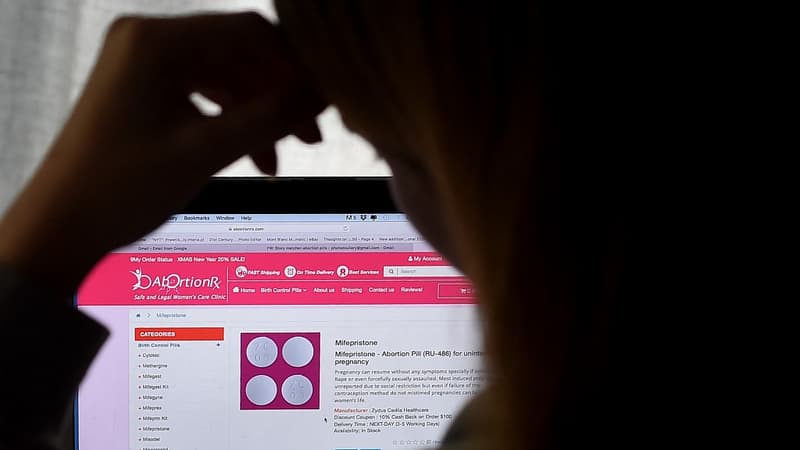Since the US Supreme Court struck down the federal right to abortion, requests from American women to have abortion pills shipped from abroad have increased sharply in the United States, according to a study published Tuesday.
This work, published in the scientific journal JAMA, analyzed the number of requests to the paid telemedicine service Aid Access, which prescribes and sends abortion pills from abroad to 30 American states.
It operates outside the US health care system and was specifically designed to circumvent local bans or access difficulties by allowing women to have abortions alone at home.
An increase of about 160%
Since late June, following the Supreme Court decision, many states have made abortion illegal or severely restricted it.
Prior to the Supreme Court ruling, Aid Access was receiving an average of 83 requests per day from these 30 states. But in the two months since the decision was announced, that number has risen to 213 a day, according to the study, an increase of about 160%.
As a proportion of the female population in each state, the increase was greatest for claims from Louisiana, Mississippi, Arkansas, Alabama and Oklahoma. These five states are among those that have completely banned abortions.
Lack of medical support
The “current legal restrictions” were often cited by women using this service, in a questionnaire they had to fill out when applying. In states that made abortions illegal, this response was cited in about 62% of cases after the Supreme Court decision, compared to 31% before.
This study also does not take into account other ways to access these pills, which are easy to find for a few hundred dollars on commercial websites, but without medical endorsement.
Difficulty accessing clinics
Another study, also published Tuesday in the journal JAMA, studied the travel time of American women to a clinic where they perform abortions. This duration averaged 28 minutes before the Supreme Court decision and increased considerably, to 1 hour and 40 minutes, afterward. But this national average hides strong local disparities.
In states that implemented an outright abortion ban or a 6-week pregnancy limit, the average increase in travel time was 4 hours, according to this study.
Lack of access to an abortion clinic is a particular problem “for people who cannot afford to travel,” the authors noted.
In the 100 days since the Supreme Court ruling, at least 66 clinics have stopped providing abortions, according to an early October report from the Guttmacher Institute.
Source: BFM TV


